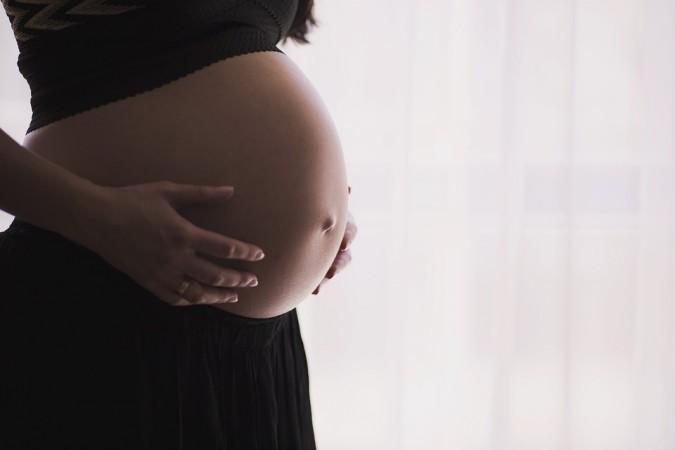
Women can get pregnant even after menopause with the help of ovarian rejuvenation, doctors claim.
Ovarian rejuvenation involves puncturing the ovaries using needles and injecting a woman's blood into her ovaries. This would allow the eggs to become fully mature and viable, and might help in overcoming ovary-aging.
This practice was used by a few clinics to aid some women in getting pregnant when all other techniques failed to work out them.
"For women, fertility begins to decline after age 30 and accelerates after 35. By 40, a woman only has about a 5 percent chance of getting pregnant during any given month, as opposed to about a 20 percent chance during peak fertility," a Daily Mail report stated.
Men produce new sperm throughout their lives but women don't produce new eggs, they are born with a finite number of eggs — around one million at birth — which are already formed and intact, say scientists.
All the immature and underdeveloped eggs are present in a follicle. These follicles develop constantly at varying rates, Daily Mail stated.
These follicles compete to produce the single healthiest egg at the time of ovulation in every menstrual cycle. After a healthy egg is selected for fertilization by the body, the remaining group of competing follicles dies.
A drop takes place in the number of competing eggs as women age. Only one or two eggs compete during ovulation when women are in their late 30s.
The ovaries are unable to process the hormones that trigger follicles to develop after they age. This results in fewer eggs reaching the viable stage of development.
The loss of function of the ovaries before the age of 40 is called premature ovarian failure (POF). This halts the ovaries from functioning before the women turn 40.
Many women aim at giving birth when they reach their mid or late-30s. "Today, as opposed to in the past, women have the opportunity to delay childbearing," Dr David Barad, a fertility specialist at the Center for Human Reproduction in New York City was quoted as saying by Daily Mail.
"So we end up with a group of very accomplished women who have achieved much in their life but, at some point, decide they want to have children, but maybe a little later than their mothers or grandmothers had children, and this is the primary group that might be looking for this kind of rejuvenation treatment," Barad added.
Barad is looking forward to starting a clinical trial for a new variation on the ovarian rejuvenation which he will carry out in April.
Over the years, Barad's clinic has used a kind of pseudo-regeneration using a steroid which aids in improving the environment in which the follicles are developing.
Rejuvenating the ovaries is a complicated process. Researchers from Japan and California have carried out experiments to increase egg production by removing ovaries, puncturing them and treating them using a growth hormone to generate healthier follicles.
Japanese researchers carried out a study on 27 patients and ended up with one successful pregnancy. The procedures they followed are a bit old and extensive.
"Other similar efforts have used stem cells and transplants of parts of younger women's ovarian cells to try to encourage the growth of new follicles or 'recharge' old ones, but these methods, he says, came a bit too close to cloning for the comfort of most," Barad said.
In reproductive terms, injuring the ovaries may make them act like they are younger.
"For about the last year, with patients who appear to be the worst-responders [to other fertility treatments], we have been using repeated needle punctures to induce some injury to the ovaries," said Barad.
"Any tissue, when injured, produces growth factors that are intended to promote the repair of tissues. These are similar to the growth factors that the Japanese [researchers] used in their protocol."
It has also been found that growth factors are present in platelets in the blood plasma, which help in healing the damaged tissues. The growth factors can be activated by spinning the blood around in a centrifuge.
Barad said he would take a woman's own blood spin it in a centrifuge and then inject it back in her ovaries while rupturing them simultaneously. According to him, this will resurrect the exhausted follicles and help in boosting their viable egg-yielding ability.
"Patients can rest assured that they will be under anesthesia and that he will be using the same sort of needle that we would for egg retrieval, so we have a lot of experience poking ovaries with them," Daily Mail quoted Barad as saying.
Dr Zaher Merhi at New Hope Fertility Clinic, which is located in New York City, also started doing rejuvenation procedures using just needle-sticks.
Merhi revealed that two out of six of his patients became pregnant after undergoing this procedure.
"Nothing will make an ovary 20 years old again, the thousands of used follicles are gone, but what we are trying to do is utilize the remaining follicles in the way that's most helpful," Barad said.
This treatment stimulates primordial follicles which remain dormant post menopause, the procedure could help post-menopausal women conceive too, in theory, said the Daily Mail report.








!['Lip lock, pressure, pyaar': Vidya Balan- Pratik Gandhi shine in non-judgmental infidelity romcom Do Aur Do Pyaar [ Review]](https://data1.ibtimes.co.in/en/full/797104/lip-lock-pressure-pyaar-vidya-balan-pratik-gandhi-shine-non-judgmental-infidelity-romcom.jpg?w=220&h=138)








